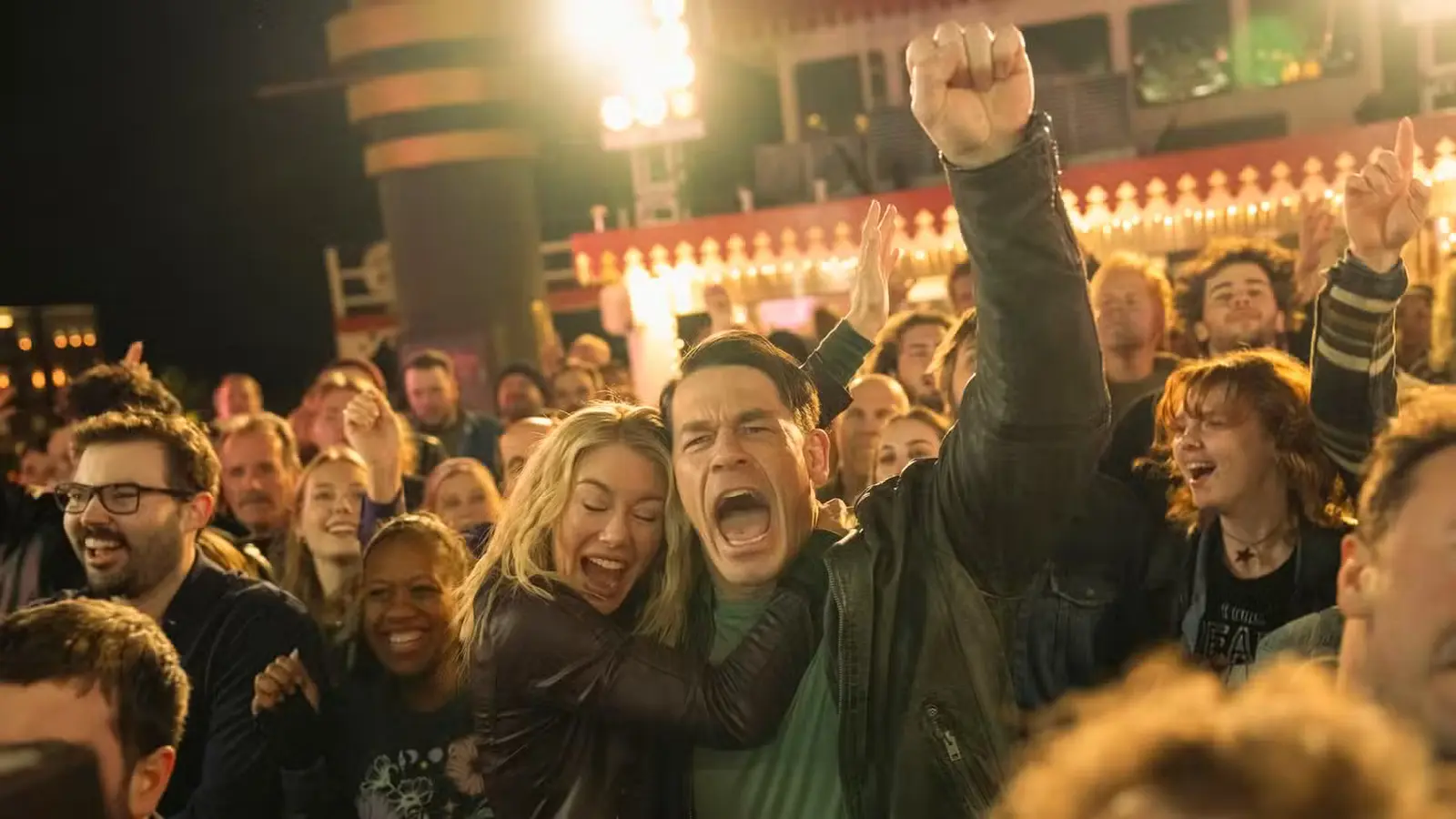8 Minutes
A season that reminded us why character-driven superhero TV still matters
Peacemaker’s season 2 arrives like a punchy, profane love letter to flawed people trying to do the right — or at least the less-wrong — thing. Writer-director James Gunn and his cast turned HBO Max’s latest installment into one of the more emotionally surprising entries in the crowded superhero landscape. The season finale, “Full Nelson,” landed with mixed reactions: respectable but noticeably cooler fan scores compared with the high points earlier in the run. That’s fair — the episode has problems — yet it doesn’t erase a season that largely reinvigorated my appetite for serialized comic-book TV.
What kept this season afloat wasn’t spectacle alone; it was affection. Peacemaker rarely feels like a cape-and-cowl show. Only a handful of characters possess explicit powers, and John Cena’s Chris/Peacemaker is more grit and therapy than superstrength. The show’s real superpower is its ensemble: the messy, fiercely loyal group that stitches together Gunn’s mixture of slapstick, horror, and heartbreak.
Why the show’s heart beats louder than its heroics
Gunn invests time in people who could easily be one-note. Chris’s emotional shutdown after losing alternate-reality family members is given room to breathe, culminating in a raw, improvisatory scene where Danielle Brooks (Leota Adebayo) delivers a monologue that lands with surprising gravity. Jennifer Holland’s Harcourt gets a quiet payoff with the long-teased “boat” moment, and Cena sells the tiny, ecstatic private dance when he realizes he matters to her. Those human beats make episodes that lean on dialogue and character recovery feel satisfying even when the season’s overarching plot sits still.
Plotters will note that “Full Nelson” doesn’t tie up every thread. It doesn’t have to: sometimes audiences watch Peacemaker because they genuinely like the people on-screen. Gunn knows this and leans into it; the finale offers a breather for the team — a luxury that many comic adaptations forget to provide.

Multiverses, done with purpose
One of season 2’s boldest moves is how it deployed alternate realities. The show treats the multiverse not as a gimmick but as a pragmatic tool. At A.R.G.U.S. headquarters, Frank Grillo’s Rick Flag Sr. dispatches unfortunate staffers into liminal, wildly imaginative realms — Candy-land murdertoon, zombie-strewn wastelands, and even an aperture to literal nothingness. Gunn’s visual imagination and ear for music turn these sequences into brisk, memorable set pieces.
That specificity is something the Marvel Cinematic Universe struggled to sustain. Marvel’s multiverse often ballooned into an unwieldy connective tissue, promising crossovers and cameo-laced catharses that sometimes undercut narrative coherence. Peacemaker avoids that trap by narrowing the multiverse’s purpose: it’s a practical solution for imprisonment and containment. That keeps the stakes sharp and easy to grasp amid the show’s tonal swings.
Comparisons and context
If you’ve followed Gunn from Guardians of the Galaxy to The Suicide Squad, you’ll recognize his rhythm: manic energy punctuated by genuine tenderness. Peacemaker’s season 2 sits squarely in that lineage — less cosmic heist than wounded-family drama with blood and jokes. It also arrives during a broader industry conversation about “multiverse fatigue.” Studios once leaned on alternate timelines as surprise engines; audiences are now more exacting, wanting either emotional depth or clear stakes, not just fan-service cameos.
Earth-X: the season’s most riveting detour
Before the finale’s calmer tone, the series pulled off a daring detour into Earth-X — a reality where Nazi ideology triumphed and descendants rule. These episodes are the season’s highlight: tense, ugly, and occasionally terrifying. Adebayo’s flight from a mob is as horror-tinged as it is a character test; the show also extracts comedic mileage from Chris’s obliviousness in a world where red flags wave like banners.
Fans responded accordingly. The Earth-X arc contains the season’s highest-rated installments because it combined stakes, satire, and emotional risk in a way that elevated the whole series. It’s telling that when “Full Nelson” steps away from that world and largely refuses to revisit its most interesting questions, viewers felt cheated.

The finale’s misstep: promise deferred
“Full Nelson” ends on a setup. Rick Flag — long on the outs with Chris — abducts our protagonist and strands him in Salvation, a prison reality built to contain powers too dangerous for conventional incarceration. It’s a high-stakes twist, but it functions more as a bridge to future DCU plans than a satisfying season coda. James Gunn’s post-finale remarks make this explicit: the conclusion matters to the evolving DC Universe and future Checkmate-related projects. That meta-framing is exciting in theory but frustrating in practice.
Film critic Anna Kovacs (fictional) offers the blunt take: "Peacemaker season 2 thrives when it keeps its focus tight — personal stakes, sharp satire, and inventive set pieces. The finale’s decision to punt the story into DCU continuity risks losing the intimacy that made the season sing." Her point underscores a genuine tension: shared-universe storytelling can both enrich and dilute a show’s autonomous momentum.
Industry implications: the risk of serialized sprawl
The finale’s design is not merely a narrative choice; it’s a strategic one. Gunn and Peter Safran are architects of a nascent DCU, and tying this show into larger plans can feel like responsible world-building. Yet the MCU’s history offers a cautionary tale: when serialized connectivity becomes mandatory viewing, audiences can rebel. Viewers may happily follow cross-platform epics when each entry rewards them on its own terms. Should DC demand more cross-chasing, it risks the same exhaustion that stalked parts of Marvel’s output.
There’s also political resonance: the show’s use of Earth-X material — a fascist alternate history — shows how superhero media can still engage with contemporary fears. That willingness to mix satire, horror, and earnest emotion is part of Peacemaker’s auteur signature and why its departures from that voice feel so conspicuous.
Behind the scenes & fan notes
A few morsels for fans: Gunn’s hands-on approach (he wrote and directed multiple episodes) explains the tonal consistency; John Cena continues to lean on physical comedy and quiet vulnerability rather than cartoonish heroics. The series’ soundtracks, another Gunn trademark, punctuate tonal shifts effectively. Community reaction has been lively: social feeds flooded with praise for Earth-X episodes and frustration about the finale’s cliffhanger. IMDb and other platforms registered a modest dip in user scores for “Full Nelson,” which mirrors the broader split between critical acclaim for the season as a whole and dissatisfaction with its closing gambit.

Where does this leave the DCU and viewers?
There are a few plausible futures: a direct Peacemaker continuation, a Checkmate-adjacent spinoff, or crossovers in bigger DC tentpoles such as Man of Tomorrow. Any path could pay off — or scatter attention further. For now, the show’s second season stands as a mostly triumphant experiment: character-first superhero TV that can be funny, upsetting, and inventive all at once.
If you find yourself hungry for similar fare on HBO Max, try Doom Patrol for another offbeat, character-led take on damaged heroes, or Watchmen for a darker, more explicitly political comic-book deconstruction.
In the end, Peacemaker season 2 is proof that superhero shows still have room to surprise. It wins on characterization, stakes delivered through alternate realities, and a fearless tonal mix. Its main problem — deferring payoff to a broader franchise — is a solvable one, provided the DCU remembers to let individual stories finish before weaving them into the tapestry.
A closing thought: enjoy the ride while it’s here. When a show this idiosyncratic gets the chance to take risks, that alone is worth celebrating.

Comments
DaNix
Makes sense tbh. Character stuff > crossover bait. fun, messy.
v8rider
Loved Earth-X, reminded me of indie horror fests I used to go to. Gunn mixes satire and gore like a pro, but yeah that cliffhanger pissed off my friends. still excited for more tho
Tomas
Pretty balanced take. Gunn's voice shines, team chemistry > big plot. Coulda wrapped some threads but meh
labcore
is the finale really just a bridge though? feels like a tease to sell DCU stuff, not a proper ending. maybe I'm salty, or tired.
atomwave
wow this hit different, didn't expect to tear up at a Peacemaker show. raw, stupid funny, messy in the best way. love the Earth-X stuff!


Leave a Comment